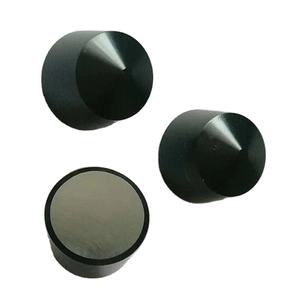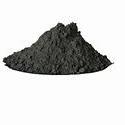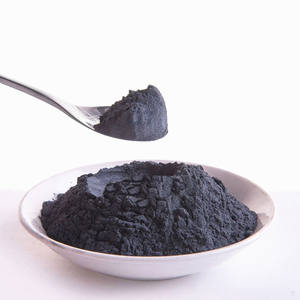Overview of boron carbide ceramics nano boron b4c powder
Boron Carbide (B4C) is a ceramic compound renowned for its exceptional hardness and wear resistance, ranking just below diamond and cubic boron nitride in terms of hardness. Composed of boron and carbon atoms arranged in a covalently bonded crystal structure, it exhibits unique physical and chemical properties that make it highly valuable in various industrial and military applications. Boron carbide’s high melting point, low density, neutron-absorbing capability, and extreme toughness further distinguish it among advanced materials.
Features of boron carbide ceramics nano boron b4c powder
-
Extreme Hardness: With a Mohs hardness of around 9.3 to 9.5, boron carbide is one of the hardest materials known, surpassed only by diamond and cubic boron nitride.
-
Lightweight: Despite its hardness, boron carbide has a relatively low density of about 2.52 g/cm³, which makes it an attractive material for lightweight armor systems.
-
Thermal Stability: It possesses excellent thermal stability, maintaining its properties up to temperatures around 2,000°C, making it suitable for high-temperature applications.
-
Neutron Absorption: Boron carbide is a potent neutron absorber due to its boron content, making it ideal for nuclear shielding and control rods.
-
Chemical Resistance: Resistant to most acids and alkalis, except for hydrofluoric acid and hot concentrated alkaline solutions, ensuring durability in corrosive environments.
-
Abrasion Resistance: Its exceptional wear resistance makes it suitable for applications where friction and abrasion are prevalent, such as sandblasting nozzles.

(boron carbide ceramics nano boron b4c powder)
Parameters of boron carbide ceramics nano boron b4c powder
Boron carbide ceramics (BCD) have gained interest in recent years due to their excellent performance in areas such as nanostructured functional materials and high-temperature technology. BCDs are also useful for the development of ceramic composites and nanofglass structures, which can have applications in various fields such as aerospace, electronics, and automotive.
One of the most important properties of BCDs is their ability to form functional networks on surfaces that cannot be easily addressed by traditional materials. These networks consist of carbon atoms arranged in a specific arrangement, such as a square pyramid or a hexagonal bar. This allows BCDs to exhibit unique properties such as high thermal stability, flexibility, and electrical conductivity, which makes them suitable for use in a variety of applications.
Another key property of BCDs is their strength and durability. They can withstand extreme temperatures and mechanical loads without deteriorating over time. Additionally, BCDs are lightweight and have low heat capacity, making them ideal for use in applications where heat transfer is required.
In terms of particle size, BCDs can be highly uniform across the surface of their particles. This makes them well-suited for use in thin films and arrays, as well as in nanofglass structures with micromechanical interactions.
Overall, BCDs offer promising potential for the development of new technologies in various areas, includingnanotechnology, aerospace, electronics, and automotive. However, the development of more effective and efficient-basedcomposites will require further research and development in order to achieve these goals.

(boron carbide ceramics nano boron b4c powder)
Applications of boron carbide ceramics nano boron b4c powder
-
Armor Systems: Widely used in body armor, vehicle armor, and bulletproof vests due to its lightweight and superior protection capabilities.
-
Nuclear Applications: As control rods and shielding material in nuclear reactors because of its neutron absorbing properties.
-
Abrasive and Cutting Tools: In grinding wheels, polishing powders, and cutting tools due to its hardness and wear resistance.
-
Industrial Nozzles: For sandblasting and water jet cutting applications where resistance to wear and erosion is critical.
-
Military and Defense: As a component in armor-piercing projectiles and defensive systems.
Company Profile
MyCarbides is a trusted global chemical material supplier & manufacturer with over 12-year-experience in providing super high-quality carbides and relative products.
The company has a professional technical department and Quality Supervision Department, a well-equipped laboratory, and equipped with advanced testing equipment and after-sales customer service center.
If you are looking for high-quality carbide materials and relative products, please feel free to contact us or click on the needed products to send an inquiry.
Payment Methods
L/C, T/T, Western Union, Paypal, Credit Card etc.
Shipment
It could be shipped by sea, by air, or by reveal ASAP as soon as repayment receipt.
FAQs of boron carbide ceramics nano boron b4c powder
Q: Is boron carbide ceramics nano boron b4c powder toxic?
A: Pure boron carbide is generally considered safe to handle. However, during machining or grinding, dust inhalation can be a concern, requiring proper ventilation and protective equipment.
Q: Can boron carbide ceramics nano boron b4c powder be machined?
A: Due to its extreme hardness, machining boron carbide is difficult and requires specialized techniques and diamond tooling. Grinding, EDM (Electrical Discharge Machining), or laser cutting are common methods.
Q: How does boron carbide ceramics nano boron b4c powder compare to tungsten carbide in terms of hardness?
A: boron carbide ceramics nano boron b4c powder is harder than tungsten carbide, with a Mohs hardness of around 9.3 to 9.5 compared to tungsten carbide’s 8.5 to 9.
Q: What is the primary use of boron carbide ceramics nano boron b4c powder in the military sector?
A: boron carbide ceramics nano boron b4c powder is primarily used in the military for body armor, armored vehicles, and as a component in armor-piercing ammunition due to its combination of hardness, light weight, and ballistic performance.
Q: Can boron carbide ceramics nano boron b4c powder be used in high-temperature applications?
A: Yes, boron carbide ceramics nano boron b4c powder maintains its structural integrity and properties up to very high temperatures, making it suitable for use in extreme heat environments such as furnace linings and high-temperature ceramics.

(boron carbide ceramics nano boron b4c powder)





